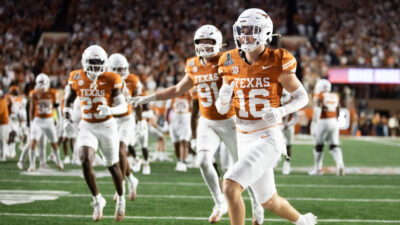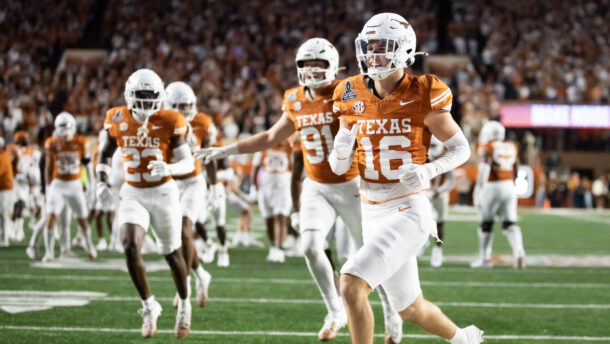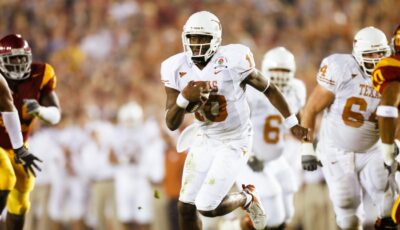
Should Kentucky rename Rupp Arena? It’s complicated, just like its namesake’s legacy
By Joe Cox
Published:
Shakespeare asked what was in a name. Apparently, plenty.
With a group of University of Kentucky professors suggesting that Rupp Arena be stripped of its name, we circle back to a long-lasting discussion, one that remains profoundly complicated. As a co-author of four books centering around University of Kentucky basketball, it’s the one question that outsiders to the UK culture always ask me.
“Was Adolph Rupp a racist?”
Well, it’s complicated. As is the discussion over his legacy, and whether a generation of mostly African-American athletes can and should feel comfortable about playing in an arena bearing his name. To start with, when we discuss Rupp, we’re talking about a coach who has been dead for nearly 45 years, who hasn’t coached in almost 50 years, and who hasn’t won an NCAA title in 62 years. Many of the eyewitnesses to the events in question are no longer living, or are less than certain over details from 50 or 60 years ago.
Here’s what we do (more or less) know:
1. Rupp coached Black players.
He coached them at an Illinois high school before he came to UK. He coached them during the 1948 Olympics, and at various All-Star games. He coached 3 Black players at UK. There are no stories about Rupp having any problems with his Black players.
2. Rupp willingly competed against teams with Black players.
Unlike other southern schools that dictated that they would not host teams that played Black players, Kentucky never seemed to have an issue on that front. There were the usual sad details of the day when black players came to town — where could they stay, where could they eat, etc. But they came and competed in Lexington, at a time when many other schools flatly didn’t allow it.
3. Rupp recruited Black players and very nearly broke the SEC’s basketball color barrier.
How intensely Rupp recruited African-American players is a matter of debate. But the facts, as contemporaneously reported and later acknowledged, are clear that once the University of Kentucky clarified in 1963 that it would accept African-American athletes, Rupp hit the recruiting trail. Wes Unseld and Butch Beard were 2 in-state recruits who he pursued, and Beard even committed to Kentucky before acknowledging that he had already signed with Louisville. Had Beard gotten out of his letter of intent to Louisville, he and not Vanderbilt’s Perry Wallace would have broken the SEC’s color line. (The late Wallace made SEC history in 1967.) Rupp continued to recruit other Black players. He signed Tom Payne in 1969, who broke UK’s hoops color barrier in 1970. Incidentally, some incredible research on this issue — and pretty much everything else on Rupp’s legacy can be found here for anyone who likes to deep dive on this topic.
4. Rupp did not advocate vigorously for integration.
There are no instances of Rupp ever extolling racial segregation or questioning integration in the public sphere. Frankly, as an aging coach, he seemed extremely reluctant to make any sort of political stance. Like Charles Barkley a generation later, claiming that he was not a role model as he sold sneakers, Rupp failed to appreciate that by virtue of his power within the sport of basketball, that he was a political figure, and that not making an expressive statement on race essentially was making a statement.
5. Failing to be more forward on race hurt Rupp and UK basketball.
Rupp’s last NCAA title came in 1958. After winning 4 titles in 11 years, he won no more in his last 14 seasons, only approaching the big prize in 1966, when UK lost to Texas Western, in the game that probably changed the college hoops landscape as much as the 1970 USC/Bama game changed the college football landscape.
Meanwhile, Western Kentucky and Louisville built strong programs, largely off the players who Rupp couldn’t or wouldn’t or didn’t sign. Inner-city Louisville was essentially closed off real estate to UK basketball until Winston Bennett in the early 1980s. While Rupp passively dawdled on integration, coaches like John Wooden and Dean Smith built up not only wins and champions, but reputations that stand essentially unchallenged in the 21st century. Kentucky’s overall race record was as good or better than any other SEC school (the integration of SEC football and the hirings of Tubby Smith, Joker Phillips, or Bernadette Locke-Mattox). But the whispers about Rupp haunted the program for decades.
6. The “case” for Rupp’s racism is mostly circumstantial.
The evidence of Rupp’s racism, aside from a long-on-fiction Disney movie about 1966’s David-and-Goliath showdown with Texas Western, exists in a handful of statements, made after his death, by people who heard him use racial slurs or disparage African-Americans. Did those things happen? While some have been directly contradicted by other people who were there, it’s not at all unlikely that they did happen. Rupp’s contemporary, former MLB commissioner Happy Chandler, who helped pave the path for Jackie Robinson’s integration of baseball, embarrassed himself around age 90 by dropping a few racial epithets in a UK board meeting on public record. Embarrassing as the incident was for everyone involved, Chandler is essentially remembered as a skilled politician and a decent man, who said a few stupid and insensitive things in his old age. Rupp might be equally complicit, based on some of the comments that were related in the years after his death.
7. The underlying issue with Rupp Arena is whether it’s fair and acceptable to hold a non-political sports celebrity to a heightened degree of political sensitivity.
Adolph Rupp was a basketball coach, not a general or a Senator. His foremost concern in life was self-evidently not any political stance, but winning basketball games. Admittedly, Rupp had to understand, even within a time well before the 24-hour news cycle or even cable television, that his opinions mattered. Within that framework, his public statements and thoughts on race were moderate for time and place. He did not beat the drum of the cause of racial equality. Nor did he make a case to turn back racial progress.
Modern professors, historians, coaches, and fans themselves would all do well to consider the big question here. How much responsibility can we place, should we place on the leaders of our sports teams to not only not actively curtail the march of progress, but to lead the cause of progress? Will Mike Gundy’s wardrobe selection someday keep his name off a stadium? Will every coach who doesn’t speak out strongly about Black Lives Matter or the right to protest racial inequality be left behind by history? That might seem unlikely now, but in 2070, it probably won’t.
Comments have been disabled on this post. The Saturday Down South community is a robust community of passionate fans, but the comments exist for healthy debate around the games. Nasty arguing or name-calling with inappropriate and explicit language will get users removed from the system and/or a shutting down of comments on various articles. Our goal is to facilitate a healthy community of fans. Arguments over politics and other non-sports issues are for other websites. On occasion, we will preemptively shut down comments on articles of sensitive topics if we have seen a recent history of such topics leading to inappropriate arguments. Thank you for understanding.
Joe Cox is a columnist for Saturday Down South. He has also written or assisted in writing five books, and his most recent, Almost Perfect (a study of baseball pitchers’ near-miss attempts at perfect games), is available on Amazon or at many local bookstores.







